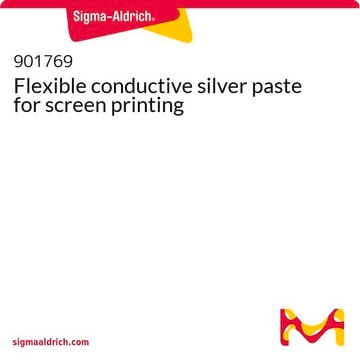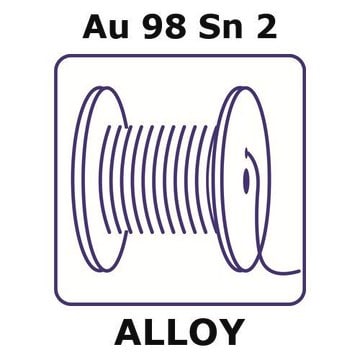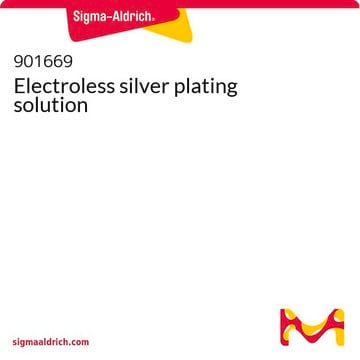推荐产品
化驗
99.99%
形狀
wire
製造商/商標名
Goodfellow 198-278-16
電阻係數
1.59 μΩ-cm, 20°C
長度 × 直徑
2 m × 0.050 mm
bp
2212 °C (lit.)
mp
960 °C (lit.)
密度
10.49 g/cm3 (lit.)
SMILES 字串
[Ag]
InChI
1S/Ag
InChI 密鑰
BQCADISMDOOEFD-UHFFFAOYSA-N
一般說明
For updated SDS information please visit www.goodfellow.com.
法律資訊
Product of Goodfellow
儲存類別代碼
13 - Non Combustible Solids
水污染物質分類(WGK)
WGK 3
閃點(°F)
Not applicable
閃點(°C)
Not applicable
S R Mueller-Spitz et al.
Letters in applied microbiology, 58(4), 330-337 (2013-11-30)
Polycyclic aromatic hydrocarbons (PAH) are a common environmental contaminant originating from both anthropogenic and natural sources. Mycobacterium species are highly adapted to utilizing a variety of PAH. Silver nanoparticles (AgNP) are an emerging contaminant that possess bactericidal properties, interferes with
Swarup Roy et al.
Journal of nanoscience and nanotechnology, 14(7), 4899-4905 (2014-04-25)
Binding interaction of biologically synthesized silver nanoparticles with bovine serum albumin (BSA) has been investigated by UV-Vis and fluorescence spectroscopic techniques. UV-Vis analysis implies the formation of the ground state complex between BSA and silver nanoparticles. The analysis of fluorescence
Ana López-Serrano Oliver et al.
Environmental pollution (Barking, Essex : 1987), 189, 87-91 (2014-03-20)
Silver nanoparticles (AgNPs) are widely used in many applications and likely released into the aquatic environment. There is increasing evidence that Ag is efficiently delivered to aquatic organisms from AgNPs after aqueous and dietary exposures. Accumulation of AgNPs through the
Cheng-Kuan Su et al.
Toxicology letters, 227(2), 84-90 (2014-04-08)
With the increasing prevalence of silver nanoparticles (AgNPs) in various products, whether such AgNPs will introduce new injury mechanisms from new pathologies remains to be determined. From the toxicokinetic viewpoint, it is vital to have in-depth knowledge of their in
Dawei Guo et al.
Journal of biomedical nanotechnology, 10(4), 669-678 (2014-04-17)
Several studies have suggested that silver nanoparticles (AgNPs) have the potential to treat human cancers, including leukemia. However, the detailed cellular mechanisms for AgNPs to inhibit the growth of leukemic cells and their efficacy on clinical isolates of leukemic patients
我们的科学家团队拥有各种研究领域经验,包括生命科学、材料科学、化学合成、色谱、分析及许多其他领域.
联系技术服务部门



